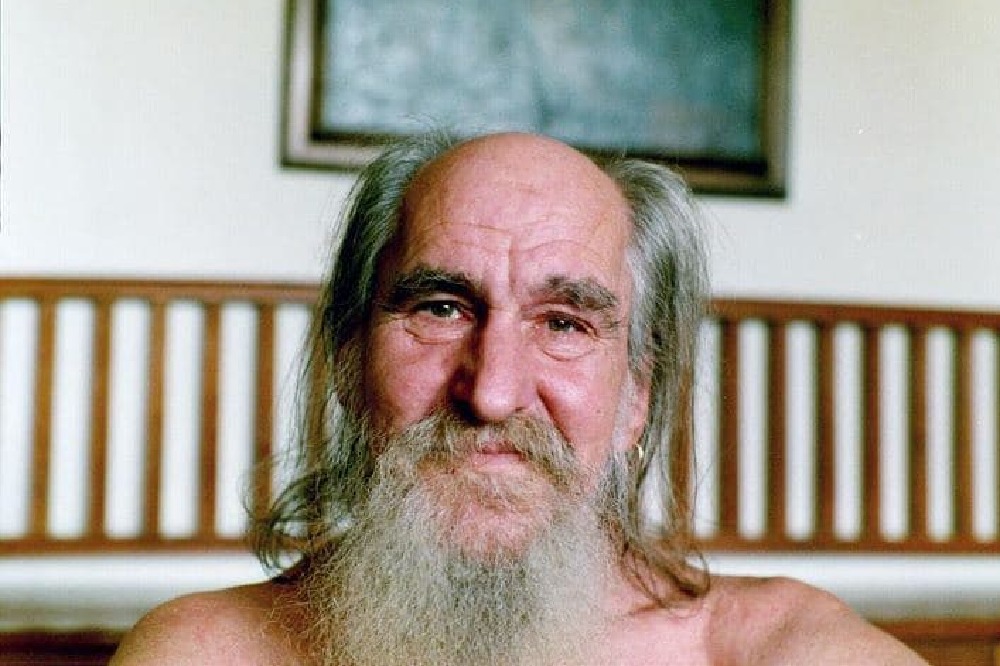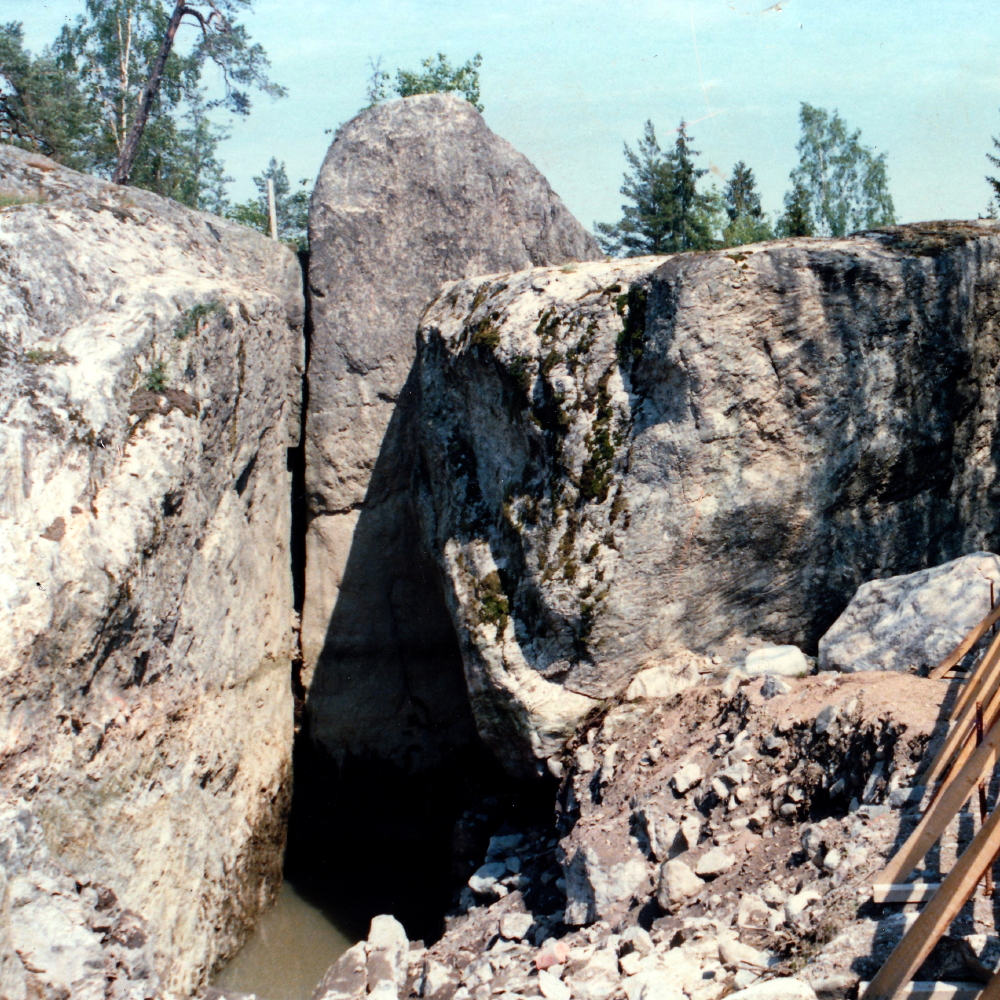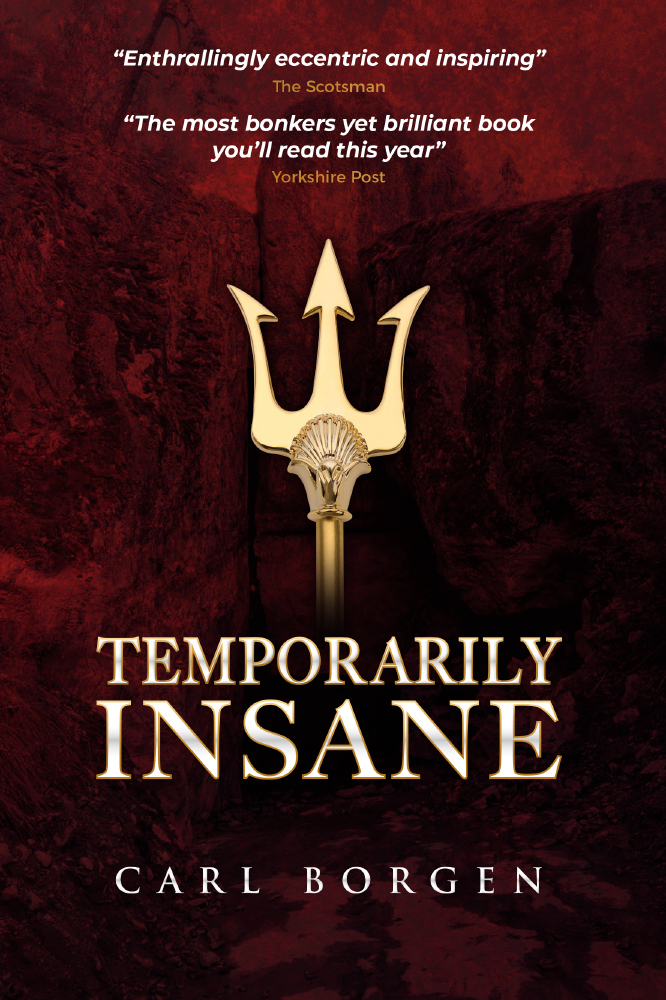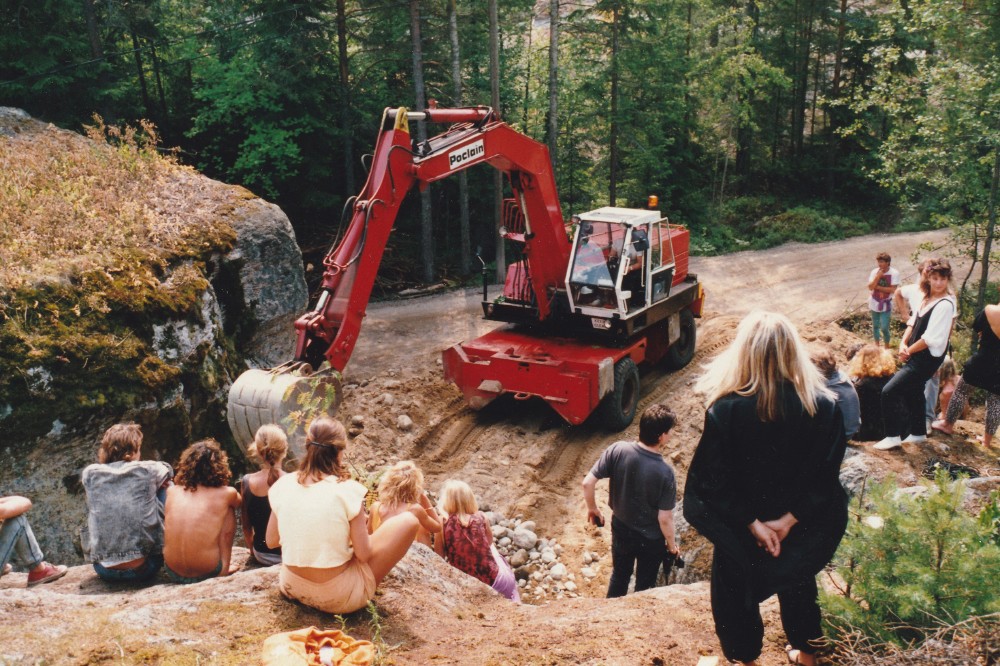As the feud between religious science-deniers and atheist Genesis-bashers intensifies, an alternative origin story has been gaining significant traction worldwide. Here, the author and historian Carl Borgen examines the phenomenon that is The Bock Saga. By Carl Borgen

Ior Bock
Science and religion are often cast as the only opponents in the battle for hearts and minds. The debate about whether they can co-exist has been raging since the dawn of mankind and continues to divide opinion to this day. But as the war of words rumbles on, an alternative creation story has been gaining headway outside of the media spotlight. Unlike its two opponents, science and religion, it has grown from a few dozen believers to more than one million worldwide without press coverage, hyperbole, or celebrity involvement.
It is called “The Bock Saga”, and is every bit as provocative as the Big Bang or the Book of Genesis. Incidentally, it is also the root of numerous Biblical stories.
For the uninitiated, the Saga is an epic creation story that challenges the mainstream scientific and religious views of human history. In over-simplified terms, it argues that humans existed on Earth 50million years ago—before an Ice Age—and originated in what is now Finland. It was here, in the land called “Odenma”, where the first societies emerged and laid the foundation of all later civilisations.
Humans, known as “pi-pol” (pronounced “pee-pol”), were not created by God and nor did they evolve from apes, but rather they arose from a genetic combination of monkeys and goats. The first two pi-pol, Frej and Freja, lived in the Garden of Oden (from which the Biblical Garden of Eden drew its name) and set about procreating the human race. Their sounds and alphabet permeate modern languages to this day.
There followed four major periods in earth’s history: Paradise Time, Atlantis, His-tory, and the New Times. It was during His-story that the Ice Age began to thaw and great floods arrived. The people fled on huge boats packed with animals, food and other supplies and found refuge in a place they called their “Noa-tun” or ‘New Yard. It is, of course, the story of Noah’s Ark.
The first people, known as the Aser, later established civilisations in Europe and across the rest of the world. Their traditions, many of which were suppressed by the Church, prevail today, the New Times.
By some estimates, there are now as many as 1.5 million people worldwide who refer to themselves as ‘Bockists’. The numbers are the more remarkable when you consider that the Saga was not publically available in written word until the release of my first book, The Bock Saga: An Introduction, in 2019. For more than three decades previously it had existed only in oral form, spreading through word of mouth with the same speed and sense of urgency as viral posts on Twitter do today.
Its emergence into popular culture has a fascinating backstory and can be credited to one Finnish man: Ior Bock. Ior shot to prominence in 1984 when he claimed that his ancestors had been keepers of the Saga for over 1,000 years. He had spent more than 20 years learning its complexities and promised to reveal its secrets only after the death of his mother. At the time of her death, Ior was the last surviving member of this once great family and the only person in the world who knew the Saga.
Ior’s secrets, which collectively became known as The Bock Saga, spread like wildfire. So, too, did interest in the Lemminkainen Temple, situated in a cave on his family estate. According to Ior, the temple contained riches beyond the wildest imaginations of even the most seasoned gold prospectors. It was piled high with treasures belonging to the first Aser people, dating back to before the Ice Age. Ior’s task was to prove his story by finding the temple and revealing its bounty.

Friends of mine in Holland—‘hippies’, you might call them—were among the original treasure-seekers. They had heard about The Bock Saga and travelled to Finland in 1987 to meet Ior and begin excavations. My latest book, Temporarily Insane, follows their work at the Temple site over the next 35 years. Excavating that temple turned out to be more difficult than expected, both literally and politically. The book describes how these adventures and scandals grew to absurd proportions and what motivated this bunch of hippies – otherwise known as the ‘Temple Twelve’ – to dedicate their lives to the task.
In 2010, Ior Bock was murdered by one of his carers, having been left paraplegic and wheelchair-bound from an earlier attack. I decided to write my books to ensure that Ior’s incredible story, and the Saga itself, were not lost to time and future generations.
The brief summary of the Saga I have given here is a poor substitute for the real thing. The story is complex, moving, and incredible from the outset. My book The Bock Saga: An Introduction does, at least, do it justice and is now considered to be the ‘Bible’ of The Bock Saga. The irony of that statement has not escaped me.
Carl Borgen is one of the world’s leading experts on The Bock Saga and the first person to put Ior Bock’s story into written form. He is the author of The Bock Saga: An Introduction and new title, Temporarily Insane, which details the 35-year hunt for the Bock treasures, out now in hardcover, paperback and eBook formats priced £19.99, £12.75 and £4.99 respectively. Further information about The Bock Saga can be found at www.carlborgen.com and www.bocksaga.info.
EXCLUSIVE Q&A INTERVIEW WITH CARL BORGEN

Carl Borgen is widely considered to be the world’s leading expert on The Bock Saga. In this exclusive interview, Carl digs into his latest book, Temporarily Insane, which chronicles the decades-long excavations at Lemminkainen Temple.
Q. Why did you feel it important to record the Bock Saga, and the stories of those who have been involved in the search for the Bock treasures?
A. The Bock Saga is the most monumental and magnificent story I have ever encountered. It survived the times as an oral story within the Bock family, which is now extinct. This was the last chance to save the story from oblivion.
The stories of the people who got involved in the Bock Saga and who committed their lives to opening the temple with unimaginable treasures is a fascinating one. It is the unexpected but logical sequence of events that anyone could have been part of in the case that you coincidentally stumbled over the hidden history of mankind and had decided to act upon it.
Q. How did you go about handling this epic task of recording the story of the Saga?
CB: After Ior Bock died, I realised now was the time to record the Bock Saga with the help of the people that had been listening to him over the decades. In addition to their memories, they possessed countless hours of audio and video tapes of Ior speaking. They always declined my offer. They said the Bock Saga is an oral story that should not be written down. In 2015, I tried again and called one of the main story tellers to convince him of the importance of the project. Michel told me he was in the hospital and had just broken his leg and could not walk for six month. I thanked the gods, jumped in the car, and drove to him with a box of chocolates. I told him: “Now you can’t run away and you are stuck to your couch for the foreseeable future. Let’s get to work!”
I had a genius literary idea about how to record and write down the Bock Saga. If I compare it to painting a house, you can start in the hall and then do room by room until the house is in the colours you want it to be. You can also take a bucket of paint and walk around randomly painting the walls you pass until all is covered with paint. That way you can tell the Saga little by little and slowly get an overview. Needless to say that it didn’t work at all. The problem is that the Saga is so large—there are so many concepts that are the backbone of it—that it is hard to tell it and not lose the big plan. Once you know the underlying concepts, you suddenly understand the Saga and, funnily enough, the world around you.
There is a lot of structure in the Bock Saga. The main problem was to translate the thousands of little facts that were in the brains of my friends into a comprehensive, structured story. So in the end we sat with another Bock Saga specialist in a tipi in his olive grove in Spain. They talked and talked. I recorded it all and tried to make an understandable story out of it. This phase was five years of intensive work.
Q. You met Ior Bock personally. What are your lasting impressions of him?
A. The first time I met Ior was in Goa, India. He asked me if I knew the names of my ancestors. I told him I came from an old aristocratic family with records going back to the beginning of the 16th century. I didn’t know their names by heart, but I could look it up, I said. Much later I realised that Ior knew the all names of his ancestors going back 10,000 years. It made me feel insignificant.
When Ior explained the Bock Saga there were so many “Aha!” moments, where you suddenly understood the relation between funny and seemingly unrelated facts in our strange world that made it logical again.
Anyway, Ior was a very friendly and intelligent man – though probably not intelligent enough
to make up the Bock Saga, as some have suggested.
Q. Some of your closest friends have been involved in the excavations of the Temple of Lemminkäinen for more than 30 years. What do you think motivates them to continue?
A. My friends believe that the Temple of Lemminkäinen and the Bock family treasure chambers, which share the same entrance, will give physical proof of the Bock Saga. The Saga explains in detail how people lived in the Paradise Time. With this proof it would show how we can turn our planet again into the paradise it once was. We could all live again like it was in the Paradise Time. Without doubt it is this, rather than the possibility of the treasure, that motivates them.
Q. You decided not to participate in the dig itself. What were your reasons for this?
A. I doubted if an archaeological find would bring an abrupt worldwide change in lifestyle in our world. That seemed unlikely to me, whatever they would find. I thought the Bock Saga to be a very interesting story. It might even be (partially) true. To me, the greatest treasure would not be all the gold and artefacts underground, but the Bock Saga itself. As that was already ‘unearthed’, I felt I was done. Over the years it became clear that to open the temple was a lifetime job. I wanted to have a different life than digging up this temple.

Q. The Bock Saga is an incredible mythology. Which element of this myth is your favourite, and for what reasons?
A. I like the idea that the human population used to be one family, which was a result of not having children within your own caste. It seems logical. Archaeologists and palaeontologists find there used to be many different hominoids in the far past. Now there is only one kind: us. The exiting conclusion is that the permanent state of war that we live in since we can remember is not a natural, nor a necessary, one. The problem could be solved with a few generations. We could all be one family again. A sort of ‘herd community’ as is the going term at present.
Q. The Finnish Government and Finnish historical organisations have so far chosen not to endorse the Saga. Why do you think this is?
A. They believe it is all a fantasy. I think they hoped this Bock Saga talk would just go away by itself, like most disturbances do. They particularly didn’t like the fact that Swedish is the oldest language on the planet and that Finnish is derived from Swedish. It interferes with the notion of an Finnish independent state, free of the Swedish oppressors.
Q. Temporarily Insane is the second in a planned series of four books on the Bock Saga. Can you tell us more about the remaining two books, to be released next year?
A. The Squatters Gang is a fictional story that tells about a protagonist and a similar group of suburban kids to the real Bock devotees in Temporarily Insane, who try to escape the fate of their predestination of what happens usually to (sub) urban kids – that, is most of us! What they don’t know is that their lives are manipulated by the gods of the Bock Saga, who try to open the Lemminkäinen Temple and restore knowledge of the Paradise Time as is told in the Bock Saga. The gods seem not really up to their task and mess up things regularly throughout the story.

Q. Belief in the Bock Saga has slowly but surely expanded outside of Finland over the last few decades. Why do you think this is?
A. The reason why the Bock Saga has become so popular is because it is a story that resonates with everyone. We live in a world that seems not very logical and to many people unjust on various levels. The Bock Saga explains how in the Paradise Time people lived with a global organisation that is orderly and just. It explains how we moved from there to the world that we live in now. Suddenly the world, and all kinds of illogical and senseless facts of our culture, suddenly seem to make sense.
If you are interested in history you probably have noticed that cave paintings that were made during the last Ice Age look very similar all over the world in their patterns and materials used. Pyramids are found all over the world. Similar Celtic style of sculptures are found all over different continents. The same unknown megalithic stones –many several tonnes heavy—are piled up everywhere. Their techniques were globally available. It is clear that that was common knowledge that is lost now. Much other knowledge was lost. The Bock Saga does not give a technical answer to these mysteries, but a cultural one. It tells why these megalithic structures were built. It offers a logical explanation to a lot of those questions. Once you understand the logic in the Bock Saga it is hard to believe that you once didn’t.
Q. Ior Bock died in tragic circumstances before the Bock Saga received mainstream acceptance. Do you think this will change, and what do you think his lasting legacy will be?
A. The Bock Saga is the history of mankind. It is here to stay from now on. It might take a couple of more generations to become general accepted knowledge but given the age of the Bock Saga a few generations here or there seems unimportant. The fates and results of individual people are equally unimportant. The story of mankind seems more like the sailing of a mammoth tanker—its course only slightly adjustable and its next harbour inevitable.
On the other hand, when Ior started to tell the Bock Saga, he was the only one in the world who knew about it. At that time the survival of the Saga hung by a thread and a misfortune could have easily prevented us knowing it and preserving this story. Ior’s legacy is that he gave up his life as a happy hippie and accepted the burden of telling the Bock Saga to us. He filled the black hole of our historic common past with logic and light. We should be thankful for that. He was attacked twice for it. The first time left him paraplegic, the second time he died. He paid a the ultimate price to tell the world about the Bock Saga.
Tagged in Books

